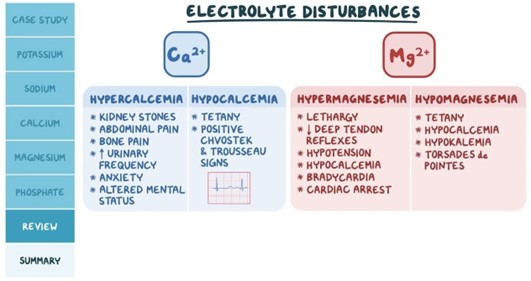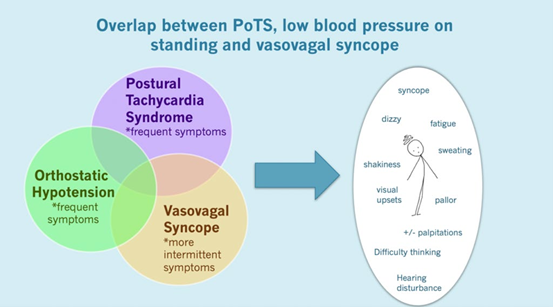The nurse is working in the intensive care unit and has just received lab results for her patients. Which of the following are considered electrolyte imbalances? (Select all That Apply)
Hyperkalemia
Hypocalcemia
Thrombocytopenia
Anemia
Hyponatremia
Correct Answer : A,B,E
These are all electrolyte imbalances. Hyperkalaemia is an elevated level of potassium in the blood. Hypocalcaemia is a low level of calcium in the blood. Hyponatremia is a low level of sodium in the blood. Thrombocytopenia and anemia are not electrolyte imbalances. Thrombocytopenia is a low platelet count and anemia is a low red blood cell count or low hemoglobin levels.

Nursing Test Bank
Naxlex Comprehensive Predictor Exams
Related Questions
Correct Answer is C
Explanation
A PICC line is a long, thin tube that’s inserted through a vein in your arm and passed through to the larger veins near your heart 1. If the PICC line is touching a chamber of the heart, it is most likely touching the right atrium 2.

Correct Answer is C
Explanation
Dehydration can cause a decrease in blood volume, leading to a drop in blood pressure (hypotension) and an increase in heart rate (tachycardia) as the body tries to compensate. Tenting skin and dry mucous membranes are also signs of dehydration, but wet mucous membranes are not. Crackles in the lungs, edema, and confusion can occur with fluid overload, but not with dehydration.

Whether you are a student looking to ace your exams or a practicing nurse seeking to enhance your expertise , our nursing education contents will empower you with the confidence and competence to make a difference in the lives of patients and become a respected leader in the healthcare field.
Visit Naxlex, invest in your future and unlock endless possibilities with our unparalleled nursing education contents today
Report Wrong Answer on the Current Question
Do you disagree with the answer? If yes, what is your expected answer? Explain.
Kindly be descriptive with the issue you are facing.
